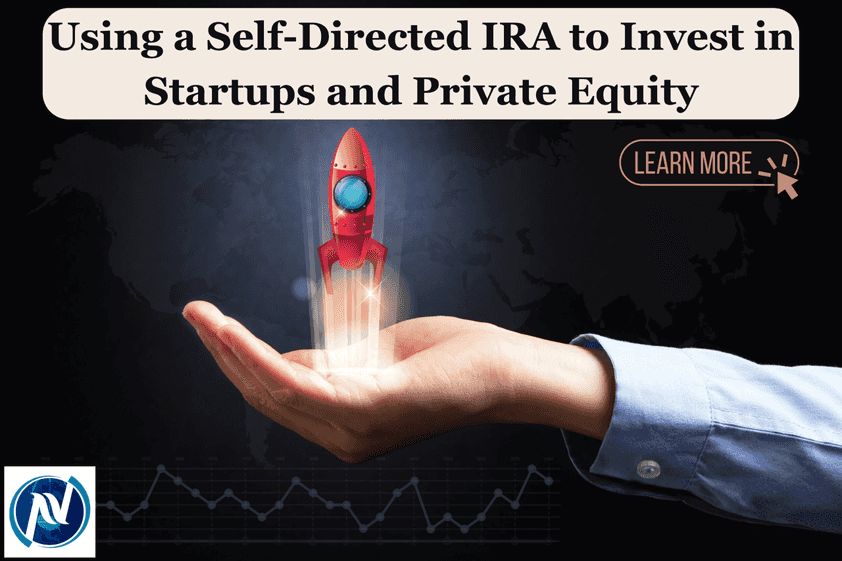Using a Self-Directed IRA to Invest in Startups and Private Equity
Imagine getting in early as an investor with Amazon, Google, or Facebook. Those kinds of returns could turn even a small investment into the wealth of a lifetime. But investing in startups and private equity isn’t always as easy as all that—it requires homework, know-how, and serious savvy. Fortunately, if you want a way to …

Imagine getting in early as an investor with Amazon, Google, or Facebook. Those kinds of returns could turn even a small investment into the wealth of a lifetime. But investing in startups and private equity isn’t always as easy as all that—it requires homework, know-how, and serious savvy. Fortunately, if you want a way to boost your potential returns, you can use a tax-protected IRA for these investments. You just need to know how to do it. So, let’s dive in and explore how you can use a Self-Directed IRA to invest in startups and private equity.
Opening the Door to Alternative Opportunities with a Self-Directed IRA
First, let’s talk about why the style of IRA you use is so important. A Self-Directed IRA gives you access to a wider range of investments than you’d find in a typical retirement account. That includes startups and private equity, spaces where the potential upside can be substantial. Unlike traditional stocks or bonds, private companies are often early-stage and not yet listed on public markets. That’s where real opportunity lies. Their valuations, if destined for greatness, can rise dramatically when the business takes off.
But let’s talk about the flip side. Since these investments aren’t listed on an exchange, they’re less liquid and carry higher risk. That’s why the flexibility and control of a Self-Directed IRA can make such a difference. You can lean into industries you know well, seek out founders or teams you believe in, and invest before the rest of the world takes notice. And because it all happens within your IRA, the growth of that investment—if successful—can happen on a tax-deferred or tax-free basis, depending on the type of account you use.
Understanding the Rules and Responsibilities
Investing in startups through a Self-Directed IRA isn’t a casual move. You’ll have to follow IRS rules carefully, including avoiding what’s known as “prohibited transactions.” That means you can’t invest in a company you or certain family members already own, and you can’t personally benefit from the investment outside your retirement account.
Fortunately, you’ll have some help with a Self-Directed IRA administration firm. The process usually involves working with a qualified IRA custodian who understands alternative assets. You’ll need to do the due diligence on the company, complete paperwork to document the investment, and make sure all transactions are properly handled through your IRA—not from your personal bank account. But once it’s set up, your IRA can hold shares of a startup or membership units in a private equity deal—and it may be easier than you think.
The Potential for Big Rewards—With Careful Planning
There’s no guarantee with startup investing. Some companies never make it past the first few years. But for investors who are willing to research carefully and act strategically, the potential for high returns is real. The ability to shelter those returns in a tax-advantaged account makes the reward even sweeter.
Whether you’re backing a medical device company, a fintech startup, or a local business with big ambition, the Self-Directed IRA structure gives you a way to align your retirement investing with your interests and insights. And if you land on the next big thing, you won’t just be watching it grow—you’ll be growing your future right alongside it.
Interested in learning more? Reach out to us here by dialing 866-7500-IRA.
Get 15 minutes of free expert advice.
If you're not sure whether a self-directed IRA is right for you, schedule a 15-minute call with our industry veteran team. We'll explain the possibilities, help you evaluate your options, and answer all your questions - no pressure, no obligations.
